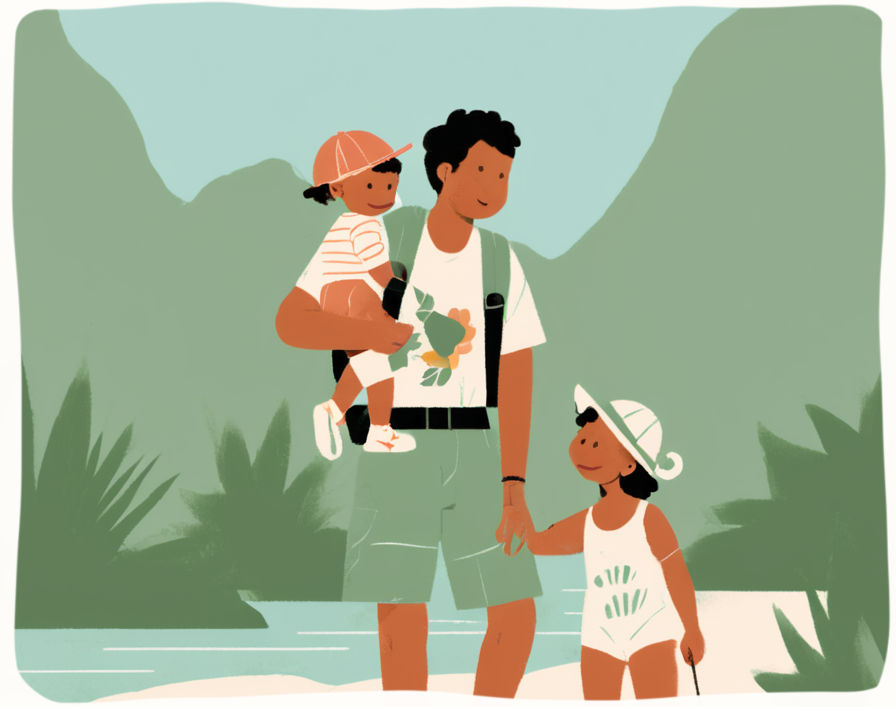Did you know your baby starts learning from the very first day? From recognizing your voice to discovering the world through touch, newborns are busy building incredible skills, and you’re the best guide they could ask for. Here’s how to spot those milestones and gently support them.

Becoming a parent turns your world upside down, in the sweetest, most magical way. One moment you’re holding this tiny little bundle, all soft skin and sleepy eyes, and the next you realize: they’re already learning. Right now. Every single second.
And here’s something comforting: babies aren’t waiting for you to “teach” them. Their brains are wired to soak in the world, naturally and beautifully. You don’t need to rush. You don’t need complicated toys or routines. The things that feel small (your smell, your voice, your hugs) are huge for your baby’s growth!
Let’s take a closer look at the very first skills your little one is building from day one, and how you can support them without adding stress (because, let’s be honest, you already have enough diapers to deal with!).
From birth, your baby knows you better than you think. They’ve been hearing your voice in the womb for months, and now, when you speak, they instinctively turn toward the sound. The same goes for your smell (yes, they can already tell the difference between you and everyone else).
This is the start of attachment, that invisible thread that makes your baby feel safe and loved! Secure attachment is a foundation for everything: emotional regulation, social confidence, even future learning.
Don’t overthink it: talk to your baby, even if they can’t understand or answer yet. Describe what you’re doing (“I’m warming up your bottle… we’re about to cuddle on the couch”). Hold them close against your chest for skin-to-skin contact. It’s soothing, regulates their heartbeat and temperature, and deepens the bond. Even during late-night feeds, whispering gently or humming can calm both of you.
If you have a partner or co-parent, encourage them to do the same. Babies can bond with more than one voice, and this creates a sense of family connection early on.
Newborns are born with a strong sucking reflex. It’s nature’s way of ensuring they can feed right away, but it’s also more than hunger. This reflex helps babies comfort themselves and explore new sensations.
This reflex is not just survival; it’s emotional. Sucking releases calming hormones that help babies relax. It’s one of the first ways they learn to self-soothe, which is a huge step toward emotional regulation later in life.
Whether you’re breastfeeding or bottle-feeding, let your baby set the rhythm when possible. Don’t worry if they want to suck just for comfort, that’s normal. Pacifiers can also be helpful if your baby enjoys them, but it’s okay if they prefer your finger or nothing at all. Follow their cues, they’ll show you what works.
Feeding sessions are also bonding sessions. Make eye contact, smile, stroke their cheek. Even if you’re feeling completely worn out, these tiny moments mean the world to your baby.
At first, your newborn’s vision is blurry. They only see about 8 to 12 inches clearly (basically, the distance from your face to theirs when you hold them). By 2–3 weeks, they start to track movement: your smile, your finger, a black-and-white mobile.
Eye tracking builds the foundation for coordination. Later on, grabbing, reaching, and even crawling depend on it. It also helps them recognize faces (spoiler: yours will be their favorite!!!).
Hold them close when you talk or sing so they can study your face. Show them simple, high-contrast patterns. Black and white shapes work better than colorful cartoons at this age. Move objects slowly from side to side and watch them follow, it’s like their first little workout.
This is a perfect time to introduce gentle “face games”: peekaboo, big exaggerated smiles, or sticking out your tongue. They can’t copy you yet, but imitation is coming, and it starts here.
Your baby’s ears are open for business. Loud bangs might startle them (that’s called the Moro reflex), but soft voices and gentle singing will calm them right down. Even more amazing: babies pick up on your emotions through your tone. When you’re calm, they feel calm. When you’re stressed… they notice that too.
This is the foundation of emotional intelligence. Long before they speak, babies learn what feelings sound like. They’re beginning to map the world of human connection. Happy voice = safe, calm; sharp tone = alert, something’s happening.
Narrate your life. Tell your baby what you’re doing, even if it feels silly (“We’re folding laundry… wow, so many tiny socks!”). Sing lullabies, hum your favorite song, or just chat, babies don’t care if you’re pitch-perfect. The more they hear your voice, the stronger the bond and the earlier their language skills grow.
If your house gets noisy (siblings, pets, doorbells), that’s okay too, it helps babies learn to filter sounds. Just balance the chaos with calm moments: soft music, rocking, and quiet cuddles.
Those jerky arm flails and little leg kicks? They’re not random: your baby is figuring out their body. Touch is the very first sense they use to explore. Over the next months, those flails will turn into intentional reaching and grasping.
Touch fuels brain development. It teaches cause and effect (“When I wave my arm, it hits something!”) and builds awareness of their own body. It also helps them understand safety, comfort, and trust.
Give your baby safe space to move: tummy time on a firm, soft mat is perfect. Offer different textures: a soft blanket, a wooden rattle, your shirt. Let them explore your fingers, your hair, even your face (yes, those tiny baby pinches are part of learning!).
Baby massages can work wonders, not just for bonding, but also for soothing gas and helping them relax before sleep. Use gentle strokes and talk softly while you do it.
Here’s the secret: you don’t have to teach your baby everything. They’re wired to grow. But when you notice what they’re working on, you get to celebrate each tiny milestone: the first time they follow your face, the first coo, the first purposeful grab.
Understanding these early skills also helps you worry less. Babies develop at their own pace. Some track earlier, some suck longer, some startle more. When you know what’s typical (and how to support it), you can relax and just enjoy your baby as they are.
And honestly? These early months go by fast. The sleepless nights feel endless, but one day you’ll blink and they’ll be crawling toward you with a big grin. Trust me, you’ll miss this stage.

